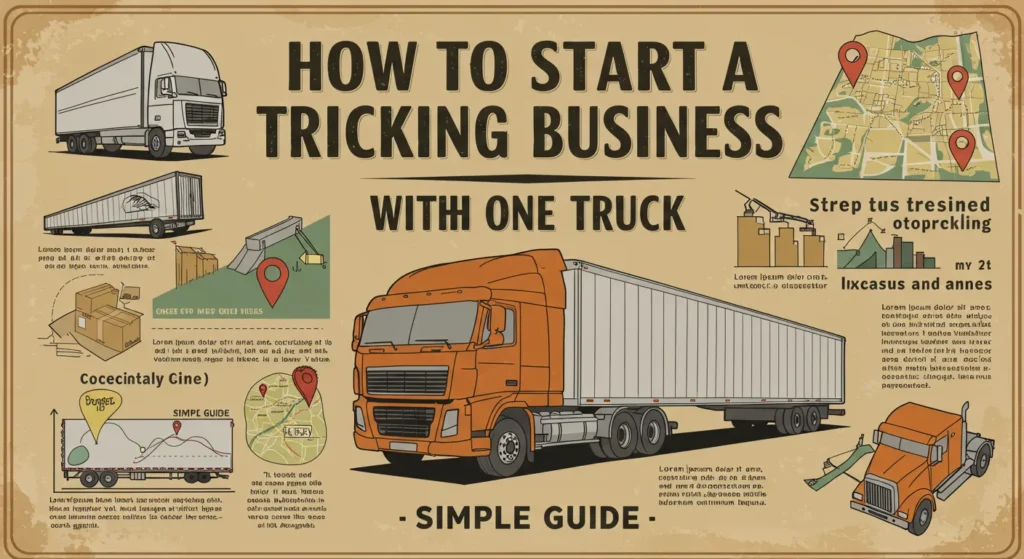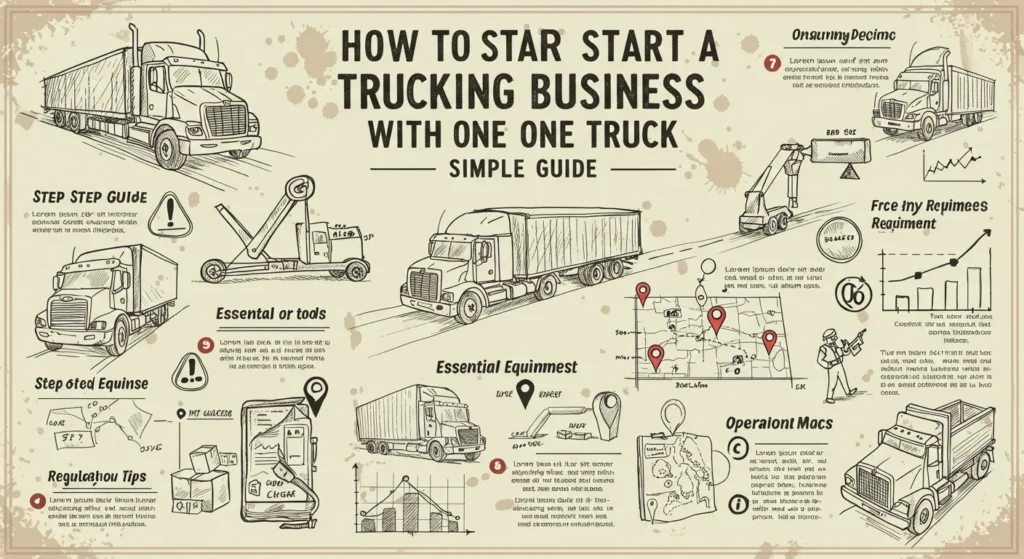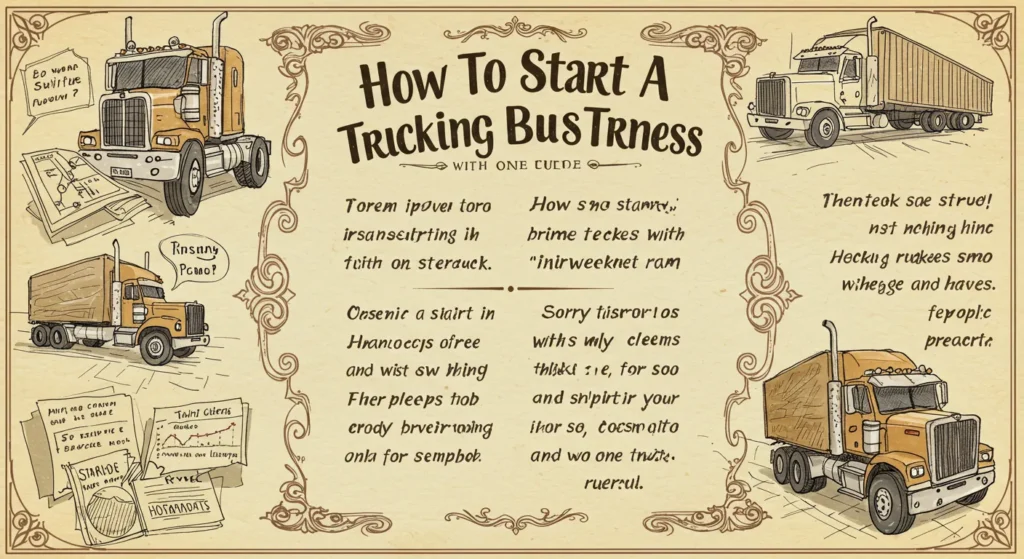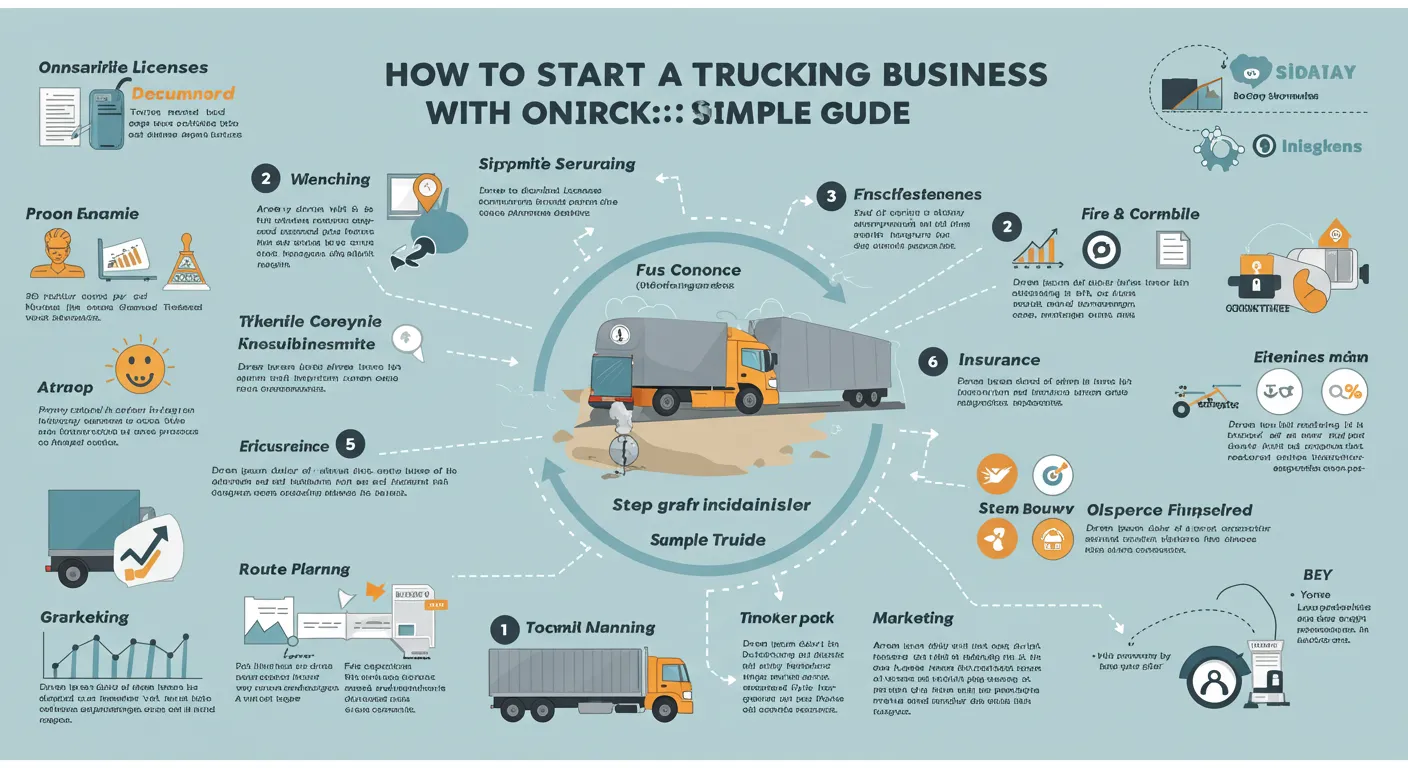Table of Contents
Introduction to Trucking Business
What is the Trucking Business?
The trucking business falls within the broader freight transportation industry involving the use of vehicles, mainly trucks and semi-trucks for conveying goods over short or long distances. In most cases, these goods range from raw materials to finished products. The trucking businesses are basically involved in the movement of freight and cargo. They have a major contribution toward domestic as well as international trade.
Trucking companies deliver goods͏ safely and on time. This industry runs a wide range of operations͏ including reefers, flatbeds, and bulk hauls. Setting up a trucking business whether a single truck or fleet type involves logistics, operational costs, and the right business structure to meet an entrepreneur’s goals.
Importance of Trucking Business
The backbone of the whole supply chain is, surely, the trucking business because it is the trucking companies that help distribute the goods to the warehouses, retailers, and in the end, to the consumers so that they remain available when needed. All these loads of goods are moved by an industry that on top of everything creates thousands of feasible job opportunities through it for truck drivers, fleet managers, as well as for the business owners.
Owning your trucking company places you in a stake in a quickly growing business that is consistently in demand. Trucking is a scalable operation since the operator may start with one single truck and increase it to any number that fits the operation, mostly the size of the fleet, promoting business. Starting your trucking business allows you to become your boss while fueling the economy through the transportation of freight across different regions.
Factors Affecting the Cost of Starting a Trucking Business

Type of Trucking Operation
When considering the startup costs, it’s crucial to decide on the type of trucking operation. Whether you plan to operate as an owner-operator, lease a truck, or establish a motor carrier company, each approach affects your budget and ongoing expenses. Starting with one truck is common for newcomers, but the scalability options are limitless once you grow your business.
An owner-operator model, where you own and operate your vehicle, might have higher upfront costs due to truck financing or purchasing a new truck. On the other hand, some choose a lease-purchase option to minimize initial expenses while still having the flexibility of owning the vehicle after a set period.
Material and Equipment Costs
Material costs in your trucking business largely stem from buying or leasing trucks and drivers plus other equipment such as trailers. Though a new truck may bring high costs, used trucks will lower the initial outlay considerably. There is financing available through commercial truck loans to make the process easier; thus very helpful when one thinks of the total cost involved in buying a truck.
Anyone in the refrigerated transport business would need to buy a refrigerated truck to carry perishable goods, which adds up more than just their basic startup costs. Maintenance is another very important factor that has to be considered in running a successful trucking business, especially if one happens to own a fleet of trucks.
Also Read: Auto Transport Solutions: Safe and Reliable Services
Size and Storage Capacity
The storage capacity for your operations depends on the size of your trucking company. You may begin with just one truck and grow to perform large shipments as the need arises. The company grows, more drivers and vehicles will also be added, and probably even a wider fleet that would be required to handle the volume of freight.
In thinking about the variable costs of a trucking business, storage capacity and transportation needs define the scope of your business. They define how big your business will become.
Business Structure

Choosing the correct commercial entity is essential for any truck startup. Many entrepreneurs opt for a single property or LLC (limited liability company) when starting a truck business, as both options provide legal flexibility and protection for owners.
In addition, the registration of an EIN (employer identification number) is required for tax purposes and to establish your truck business as a legitimate entity. Understanding the best business structure for your business can help minimize taxes and protect your assets as your truck business grows.
Licensing and Permits
A trucking business is also formed through the acquisition of different licenses and permits, among them, the FMC operating authority and a CDL. You might also want to register with the National Motor Freight Traffic Association based on how you run your operations or get a motor carrier permit.
Some areas also need specific local permits, so it is important to know what is required in your locality and the kind of freight you intend to carry. This may involve registering with the FMCSA and filing your BOC-3 as a freight broker for drivers, and having drivers who possess a valid CDL.
Insurance Requirements
One of the critical decision at start up is to get the right insurance for the trucking business. This will protect your assets and the goods while they are in transit. General insurances for trucking firms are such as cargo insurance, truck insurance or more accurately called, motor truck liability.
Having commercial truck insurance is essential to protect against potential risks, and factors such as the entrepreneur’s credit score can affect insurance awards. Consider talking to an insurance broker to determine the best coverage for your truck operations.
Also Read: Challenges and Solutions in Team Truck Driving
Types of Trucking Equipment and Their Prices
Selective Racking Systems
Trucking operations that require stored or transport through a racking system, such as vehicles refused for pear goods or heavy duty cargo for industrial products, will require to consider devices that carefully meet their needs. Specific devices may include trailer types such as flatbeds, dry vans and refrigerated trailers.
Drive-In and Drive-Through Racking
In the scaling of your trucking business, you may as well put investments into more advanced logistics systems: refrigerated vehicles and a transport hub with integrated cargo insurance and freight factoring service, which may also ensure fast unloading and loading goods into different freight containers.
How to Estimate the Cost of Starting Your Trucking Business

Calculating Warehouse Space Requirements
Know how much space you will need for warehousing. Some trucking companies cooperate with warehouses and freight brokers who help them organize their shipments. Whether it is a simple truck stop location where the trucks can stay overnight or an actual warehouse that needs to be used to control freight shipments, the cost of space has always to be added to your budget.
Choosing the Right Racking System Based on Budget
Choose your racking system, and also decide if you want to begin with a used truck or a new truck based on your general budget and growth expectation. Investment in the right place may reduce long-term costs, and operational efficiency will be improved.”
Read Also: The Impact of the Euro 6 Emission Standard on Choosing Tractor Units in Europe
Considering Additional Costs (Installation, Maintenance)
The cost for maintaining vehicles, including trucks and drivers-not forgetting truck stop facilities-can run up quite high. This should be factored into your business plan; hence, steady cash flow as well as avoiding any surprise expenses ensured.
Racking Equipment Pricing: Key Insights
Starting a trucking business can be exciting and highly lucrative͏ if well planned wit͏h a strategic approach. The right business structure, consideration of licensing and permit requirements as well as understanding the full ͏range of expenses associated with trucking (including vehicle purchases, insurance, and maintenance) will take you successfully through all the complexities that surround the industry.
Be it a one-truck operation or a fleet of vehicles, owner-operators, have the flexibility to build a business that aligns with their goals. Consult experts and update your business plan, always as competitive evolution happens in the trucking landscape.

